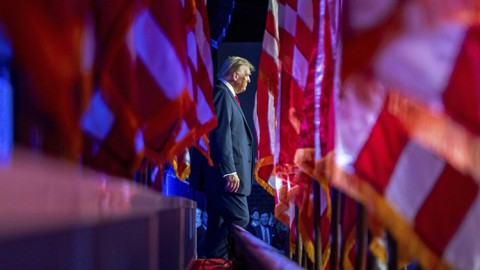As the European Commission lays the groundwork for a new target to reduce CO₂ emissions by 2040, the old continent finds itself at a critical juncture regarding its commitment to environmental sustainability. The ambitious European “Green Deal,” once hailed as a driving force and beacon of hope for a greener future, is now facing new challenges from various fronts, including farmers, industrialists, and right-wing governments. With the upcoming European elections looming large, the fate of the Green Deal seems to hang precariously in the balance, casting a shadow over Europe’s path towards a sustainable future.
Initiated by the Von der Leyen Commission, the European Green Deal demonstrates the EU’s commitment to combat climate change and achieve carbon neutrality by 2050. However, the path to realizing this vision has been marred with obstacles, reflecting the diverse interests and concerns of member states and citizens across the continent.
At its core, the Green Deal encompasses a wide-ranging set of initiatives aimed at overhauling various sectors, from energy and housing to biodiversity and air pollution. Yet, despite significant progress in some areas, challenges persist. Deadlocks in negotiations over energy taxation and pesticide reduction underscore the complexities involved in implementing such sweeping reforms.
Moreover, the rise of right-wing governments and populist sentiments in several European countries has exacerbated tensions surrounding the Green Deal. In Italy, Prime Minister Giorgia Meloni’s government has labeled the initiative as “climate fundamentalism,” seeking to dilute its provisions. Similarly, in Sweden and Hungary, center-right coalitions have scaled back climate budgets and opposed green policies, reflecting a broader trend of resistance among conservative factions.
Germany, a key player in the EU, has witnessed internal strife over the Green Deal, with the hard right and conservatives criticizing measures to phase out fossil fuel-based heating systems. Such opposition, fueled by concerns over economic repercussions and perceived infringements on individual liberties, threatens to undermine the momentum towards sustainable development.
The backlash against the Green Deal is perhaps most pronounced among European farmers, who have mobilized en masse to protest against what they perceive as burdensome environmental regulations. Across Europe, farmers decry rising costs, dwindling profits, and the burden of compliance with stringent green policies. Calls for reforms and exemptions from the Green Deal echo loudly, with demands for greater flexibility and support from governments.
In response to mounting pressure, the European Commission has proposed easing certain environmental rules for farmers, acknowledging the need to address their grievances.
Lately, some 20 members of the European Union asked Brussels to scale back and possibly suspend the bloc’s anti-deforestation law, saying the policy would harm farmers, in the latest blowback against Europe’s environmental agenda. The EU law is meant to root deforestation out of supply chains for beef, soy and other agricultural products sold in Europe so that European consumers are not contributing to the destruction of global forests from the Amazon to Southeast Asia.
However, these moves have drawn criticism from environmental advocates and civil society groups, who warn against sacrificing long-term sustainability for short-term political gains.
Amidst these challenges, the upcoming European elections loom large as a pivotal moment in determining the trajectory of the Green Deal. The erosion of support for green parties and the resurgence of right-wing populism threaten to derail Europe’s environmental agenda, raising concerns about the continent’s ability to fulfill its climate commitments.
Yet, amidst the growing discord and division, there remains hope for a renewed commitment to environmental progress. The European Green Deal, despite its flaws and detractors, remains a symbol of a collective aspiration towards a greener, more sustainable future.
Environment activists and green parties are intensifying their efforts to offset the growing opposition of the deal, urging policymakers, businesses, and civil society stakeholders to unite in reaffirming the importance of climate action and forging a path forward that balances economic prosperity with environmental stewardship.
As Europe stands at a crossroads, the fate of the Green Deal hangs in the balance. The EU must address the concerns of various stakeholders while maintaining its commitment to climate action.
The choices made in the coming months will not only shape the continent’s environmental legacy but also determine its ability to confront the existential challenge of climate change. In the face of mounting opposition and skepticism, Europe needs to reaffirm its commitment to sustainability and strive towards a future where prosperity and planet go hand in hand.







